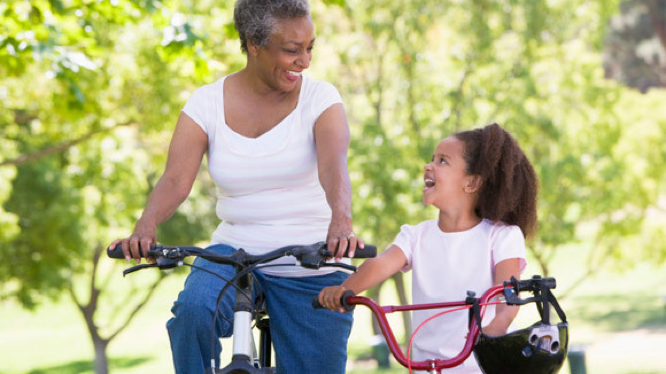Obesity is associated with an earlier onset of puberty that in turn is a recognized factor that increases the risk of breast cancer.
Most studies of lifestyle—specifically nutrition and physical activity—and risk of breast cancer have involved adults, not children; however, these studies have shown that, in general, maintaining a healthy weight, staying physically active throughout life, and consuming a healthy diet can reduce a person’s lifetime risk of developing cancer.
Parents and other caregivers need to understand their own role in how a child views food, physical activity, and sedentary behavior, which ultimately affects weight, and should be encouraged to set a good example by making healthy food choices and being physically active.
Having parents get actively involved in exercise with their children can provide many benefits. Recommendations for getting physically active as a family include:
- Joining a parent/child dance or gymnastics class.
- Going for walks.
- Taking the dog for a walk. Many children love interacting with dogs, so it adds an element of excitement to what could otherwise be just a walk. This could also be an opportunity to teach children responsibility and animal care by allowing them to hold the leash.
- Planning a hike around the city or on nature trails. As a family, plan the route and the supplies that will be needed.
- Riding bikes through the city or on bike trails.
- Dancing! Parents can learn their children’s latest moves and then teach them the ones they remember from their teenage years. Plan a disco night.
- Getting rid of the remote and get off the couch to change channels, standing during commercials and walking in place; or challenging the family to see who can do the most push-ups or leg lifts during commercials.
For more information
- Fact Sheet for Health Professionals: Lifestyle and Breast Cancer Risk (color) – PDF
- Make Family Time Active Time – NHLBI
- Making Physical Activity a Part of a Child’s Life – Centers for Disease Control and Prevention (CDC)
- Physical Activity Resources and Publications – CDC
- Tips to Reduce Screen Time – National Heart Lung and Blood Institute (NHLBI)



